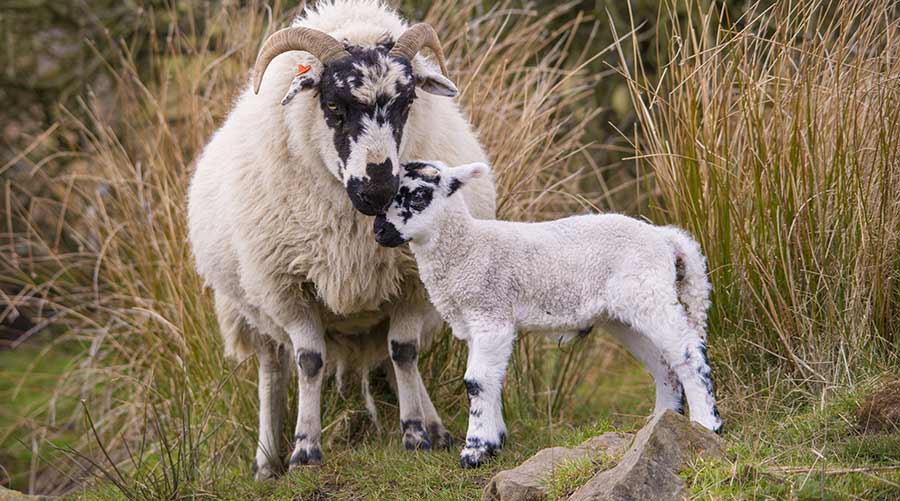Scottish sheep scheme farmers warned to avoid penalties for application errors
 © FLPA/John Eveson/Shutterstock
© FLPA/John Eveson/Shutterstock NFU Scotland has warned upland sheep farmers to avoid incurring swingeing payment penalties when claiming for a vital €8m (£7.25m) support scheme.
The Scottish Upland Sheep Support Scheme (SUSSS) opens from 1 September, with a 30 November deadline for applications. But each year claimants make common errors and have large percentages of their payments withdrawn, an NFUS spokesman said.
See also: Farmers lock horns with Natural England over stocking rates
The scheme provides direct support to help maintain sheep flocks in farm businesses that rely on poorer-quality rough grazing found in Scotland’s Basic Payment Region three.
Individual payments depend on the total number of eligible claims submitted. As an indication, payment levels for the 2018 scheme were £68 per eligible ewe hogg and went to more than 1,100 successful applicants.
SUSSS overview
- Annual budget of €8m (£7.25m at current exchange rate) with payments in sterling subject to exchange rate variation
- Aimed at sheep businesses on poorer rough grazing with 80% or more of farmed land in Scotland’s Basic Payment Region three, no more than 200ha (494 acres) of good-quality agricultural land in Scotland’s Basic Payment Region one
- Eligible animals must be retained on the holding (including away winterings) from 1 December in the claim year to 31 March the following year
- Payments are for ewe hoggs born on Scottish holdings
- Upper claim limit 1 ewe hogg/4ha
- Ewe hoggs must be under 12 months old at the start of the retention period
- A flock register must be kept up to date
- Claimants must comply with the Sheep and Goats (Records, Identification and Movement) (Scotland) Order 2009
The scheme is extremely valuable but many farms miss out because of scheme breaches, an NFUS spokesman said.
Over the past few years a common breach is where animals have not been retained on the registered holding during the retention period, he explained.
This could be if registered ewe hoggs have been sold or died without being recorded, or just not present during inspection.
When registering for the scheme all locations that will be used for these animals during the retention period must be entered on the claim form, he said.
If sheep are to be moved to a place not on the claim form – even for a short period – the RPID area office must be notified in advanced.
This must be done in writing – by email, letter or online – and include this additional retention location before the movement is made.
The other most common breach that has resulted in scheme penalties is incorrect tagging – often where slaughter tags have been used.
“Eligible ewe hoggs must be under 12 months old when the retention period starts and must be fully electronically identified before claiming – with two matching identifiers – and recorded in the holding register,” the spokesman said.
NFUS Less Favoured Area chairman Robert Macdonald said SUSSS was a vital source of support.
“It is important farmers do not miss out on some of that money because of easily avoidable mistakes. “Many of the breaches that have incurred penalties in the past have either been from lapses in book-keeping or not using the appropriate tags.”
He advised claimants to take their time and double-check their claims.
“This support is not only important for farmers and crofters producing a fantastic product from some of the toughest farmland, but also to the local communities, which see a huge amount of reinvestment from these businesses.”
Full guidance for SUSSS can be found on the Scottish Government Rural Payments website
Penalty levels for claims made on ineligible animals
- Level one: For fewer than three animals – payment cut by the percentage error rate of the total claim
- Level two: Up to 10% error rate –- payment reduced by the percentage error rate
- Level three: 10-20% error rate – payment reduced by twice the percentage error rate
- Level four: more than 20% error rate – all payment withheld
- Level five: more than 50% error rate – all payment withheld, plus a fine to other entitlement payments over the following three scheme years
